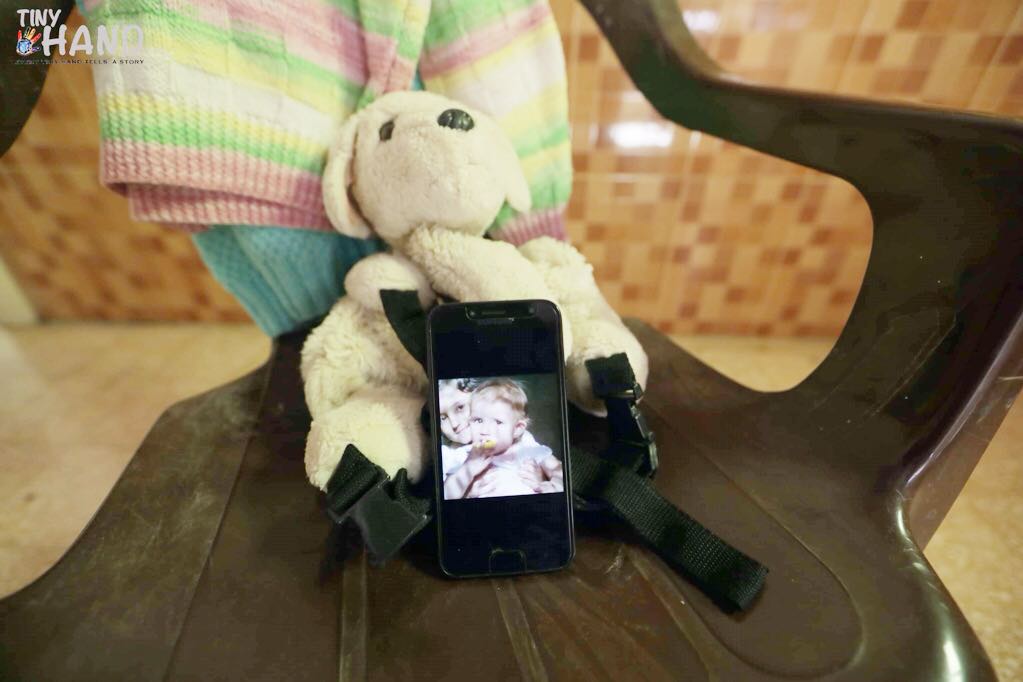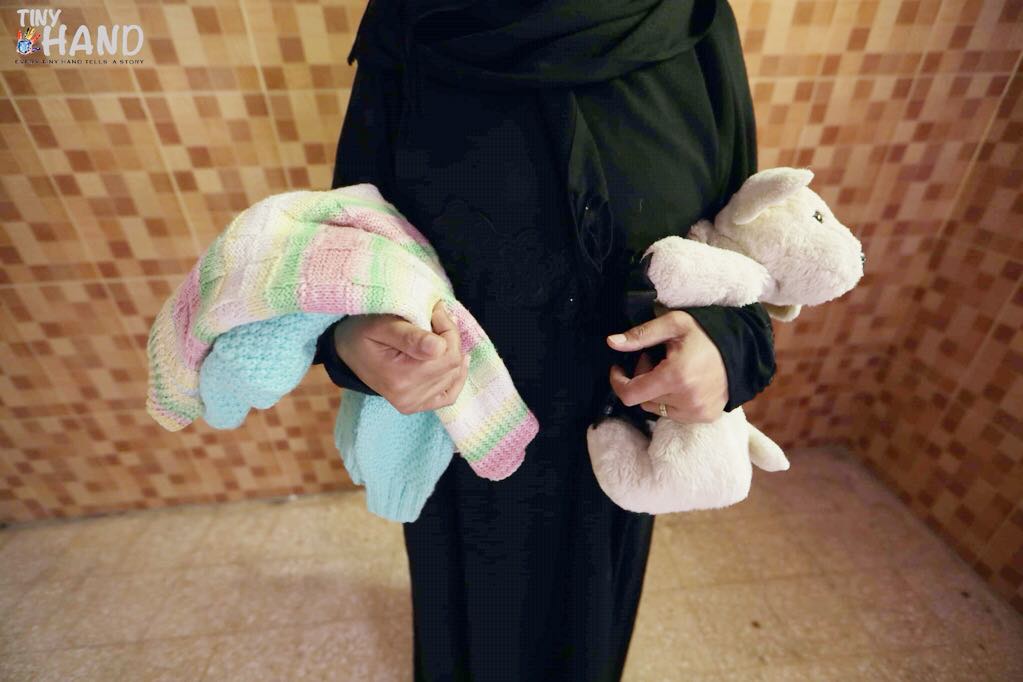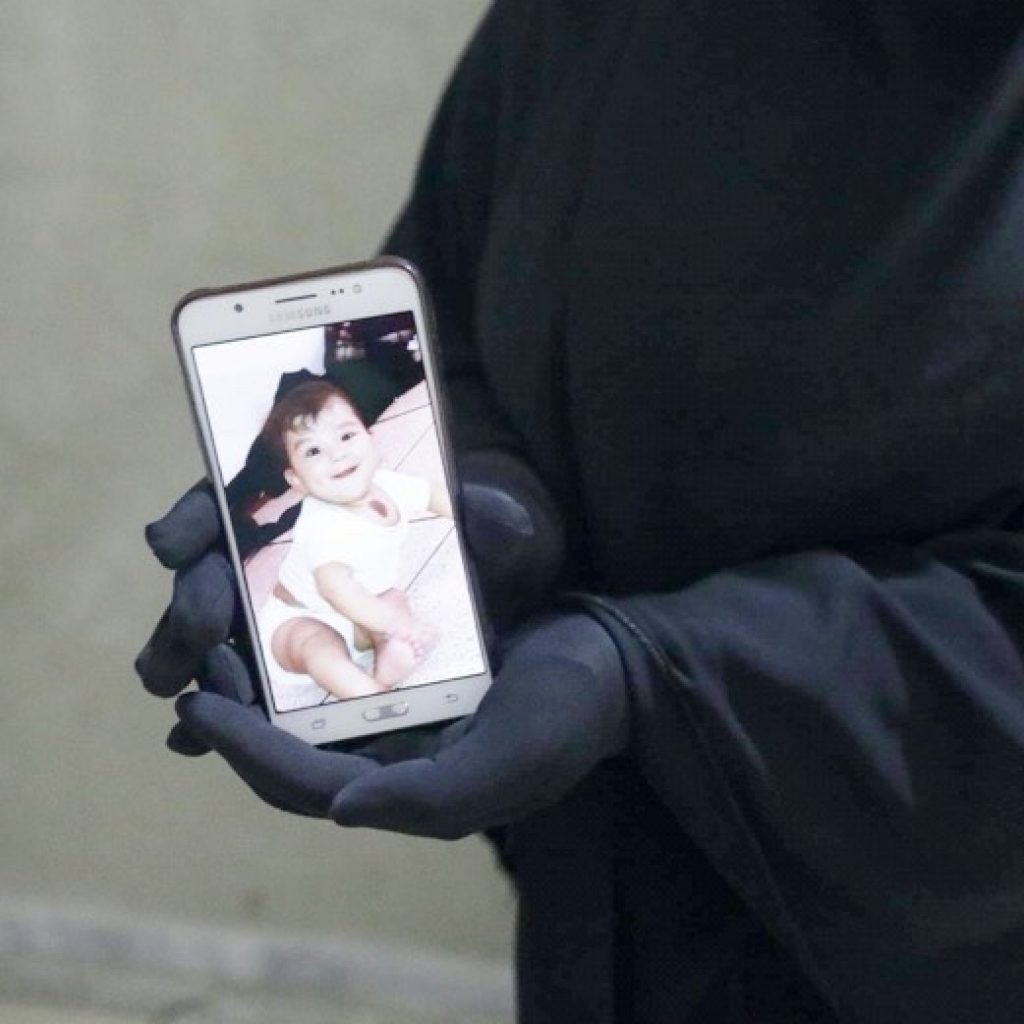Gone, Leaving their Scent Behind: Syrian Children

It was no surprise that Renal’s favorite toy was a dog, as she adored pets. In fact, she had been taking care of the chicks on her family’s farm just a few hours before she was killed, feeding each one by hand. “I will never forget that scene with all its details. It is as if she is now in front of me with the chicks.” As this mother tried to suppress her pain and recall the details of that day, she decided to pack her child’s toy to preserve its scent.
August 14, 2016, is the date my daughter Renal passed away. It has always been the worst day of my life,” said Fatima. “I am sure nothing can compare to this pain.” The bereaved mother shared this with us in her house in Idlib, Syria, where she had been displaced.

It was not surprising that Renal’s favorite toy was a dog, as she adored pets. In fact, she had been caring for the chicks on her family’s farm just a few hours before she was killed, feeding each one with her hands. “I will never forget that scene with all its details. It is as if she is now in front of me with the chicks.” While trying to suppress her pain and recall the details of that day, her mother decided to pack her child’s toy to preserve its scent.
Renal was 8 years old when she was killed by the shrapnel of a missile that fell beside her house. Its fragments struck her family members, but the worst scar was the one Renal’s death left in her father’s heart. “She was very attached to her father. He was so shocked by her death that he kept silent.”
“No matter how many days or years pass, it is impossible to forget her,” says Fatima while gazing at her daughter’s photo on her cell phone. She murmured words inaudible to us, yet this was not important. It was enough that her daughter was listening to her.
A recent study conducted by Rockefeller University in New York found that we remember 35% of what we smell, compared to 5% of what we see and 2% of what we hear. The scientists working at that university inhabit the other side of the globe, but their findings resonate deeply with this grieving mother.
Yet, the theory of the smell and its extraordinary power in evoking painful memories has been confirmed by Syrian bereaved mothers who lost their children because of the decade-long war. They have stored their memories in shreds of cloth or remains of clothes, confirming that odors do trigger painful memories.
Huda, a displaced grandmother from Aleppo, had her agonies hidden in such odors. Her painful memories were more colossal than those of the other mothers we met. In these memories, she sees pictures of eight family members, namely her children and grandchildren, the youngest of whom was no older than one month. When we asked her when it had happened, she hesitated and then answered, “It happened 4 years ago,” stating that she had stopped counting the days.
However, during holidays, one’s memory is afflicted by the reminiscence of loved ones who are gone, especially their last moments before death. She was with them when the bombing took place and heard them cry out in fear and agony.
Huda said, “It was six o’clock in the morning when I kissed and covered them. An hour later, the bombing started. My daughter yelled, ‘My children were killed!’ and I yelled with her, ‘My children and grandchildren were killed!’ I try not to recall those hard moments.” Though grandmother Huda tries not to remember what she lost, she sees her grandchildren in the faces of all children. She sees her own pregnant daughter, who was killed in the bombing along with her unborn child, in every pregnant woman.
According to the United Nations Children’s Emergency Fund (UNICEF), about 12,000 children were killed during the clashes in Syria. These are included in the 387,118 children recorded by the Syrian Observatory for Human Rights (SOHR) until December 2020.
Tags
Related Posts
Surviving war in Damascus
In the heart of Old Damascus,, where life is marked by challenges and hardships, lives Maya. At just 14 years old, she carries burdens far beyond her years. Surviving war in Damascus Maya's Journey: Becoming the Strength of My Family Through Collecting Cardboard Enter keywords…
March 10, 2025Tiny Hands, Heavy Burdens: A Child’s Life on the Construction Site
At five in the morning, we met Issa in his modest, rural home in al-Karamah area of the Raqqa countryside. The early breeze bit into our faces as Issa finished breakfast with his brothers and father. Dressed in a red shirt, he had pulled on a light cotton jacket to shield himself from the morning chill….
March 10, 2025




